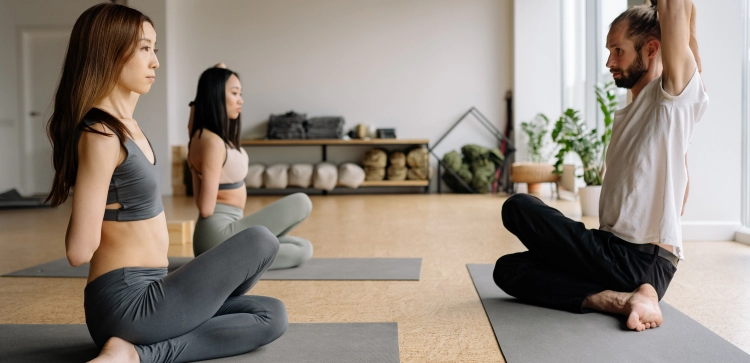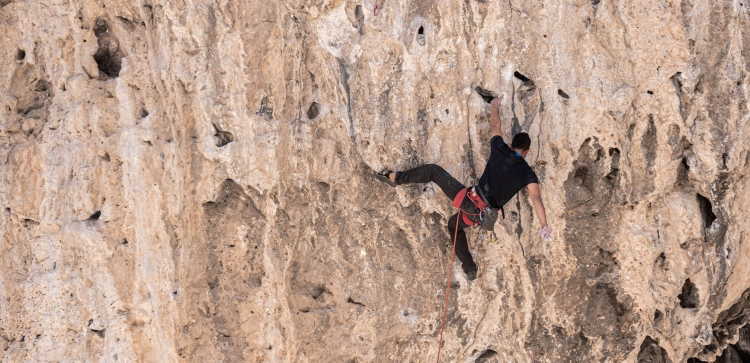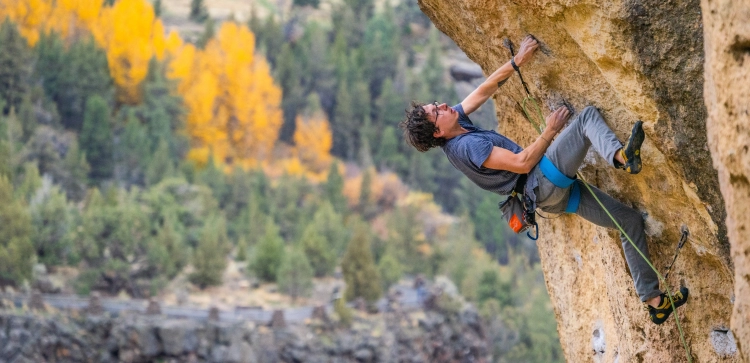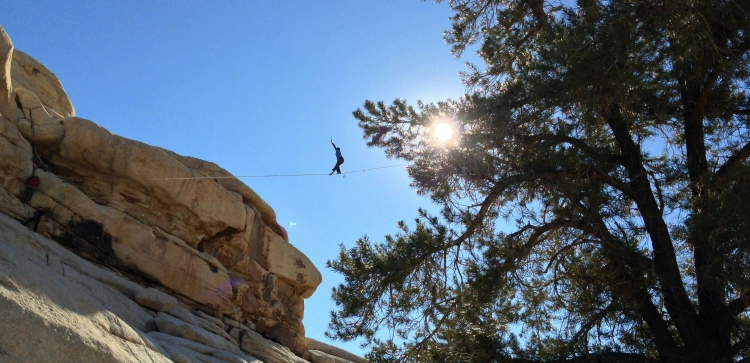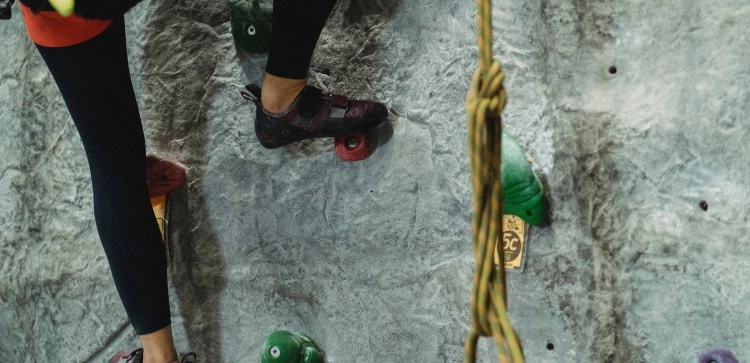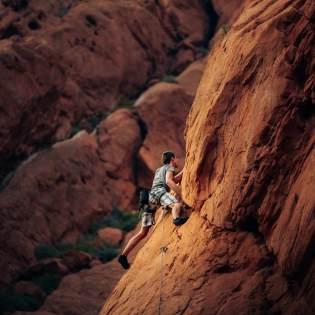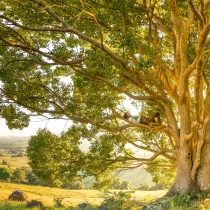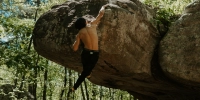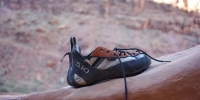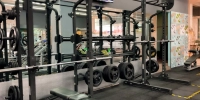Debunking The Myth: The Truth About Upper Body Strength In Rock Climbing
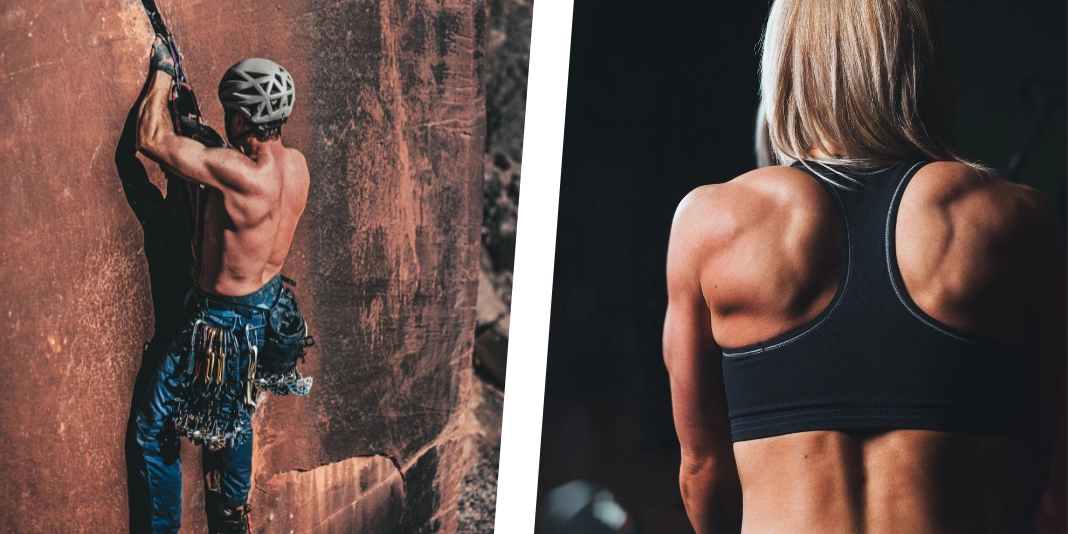
Do you need upper body strength to rock climb? While many believe it's essential, the truth is more nuanced. While upper body strength is very important in rock climbing, a combination of strength, technique, balance, positioning and placement, and fitness is necessary for higher performance climbing.
The aim of this article is to shed some light on the myths and misconceptions sorrounding the somewhat stigmatic thought that upper body strength is the most important factor for climbing performance. We'll go over overall fitness, climbing technique, inclusivity, real-life examples, and safety considerations, all in the goal of better understanding the actual requirements of upper body strength in climbing.
Debunking the Myth
One of the biggest misconceptions about rock climbing is that it solely relies on upper body strength. While having upper body strength can be beneficial, it is not the sole determinant of climbing ability. Climbing technique, balance, body positioning, and overall fitness also play crucial roles in climbing success.
Climbing is a Full-Body Sport
Rock climbing is a sport that has an emphasis on specific muscle groups, but is in no way exclusive to these muscles or to just upper body muscles. Proper footwork, body positioning, and efficient movement are essential for successful climbing. In fact, the legs and core muscles, such as the abdominals, obliques, and lower back, are essential for climbing because they help you stay balanced, stable, and in control while letting your upper body muscles rest.
Importance of Overall Fitness
While upper body strength can be an asset in climbing, overall fitness is equally important. A well-rounded fitness program for climbers should include core exercises, flexibility training, and cardiovascular exercises. A strong core helps maintain stability and control, while flexibility improves range of motion, and cardiovascular endurance aids in stamina during long climbs.
Role of Technique
Rock climbing relies heavily on technique, and good technique can make up for weak upper body power. Using efficient movement patterns, finding the right holds, and using body positioning effectively can help climbers conserve energy and overcome physical limitations. Investing time in learning and refining climbing techniques can significantly impact climbing performance, regardless of one's upper body strength. Proper climbing technique is important to learn early on, to not rely on one's upper body strength, otherwise, correcting this, later on, will be much more difficult.
Inclusivity in Climbing
It's important to emphasize and understand that climbing is a sport for everyone and not for specific people who fall under a certain category. A persons body shape, size, strength, and even age do not determine if they can climb and how good they will be. Focusing solely on upper body strength can perpetuate exclusivity in the climbing community, discouraging people with different abilities from trying the sport. A climber's ability to progress is determined by a variety of factors, including their balance on the wall, flexibility, mental focus, problem-solving skills, and determination. In the climbing community, emphasizing inclusivity and diversity can help to foster a welcoming and supportive environment for all climbers.
Training for Rock Climbing
A thorough training program that goes beyond simply increasing upper body strength is necessary to improve climbing performance.
Climbers can build a solid foundation for climbing by incorporating general fitness exercises like core strengthening, flexibility training, and cardiovascular workouts. To further help improve climbing performance, climbers can include climbing-specific training exercises into their training program, such as hang boarding, finger strengthening exercises, and grip training.
Real-Life Examples
Numerous climbers of varying abilities and body types have successfully climbed without relying solely on upper body strength. Many climbers prioritize technique, balance, and overall fitness over brute strength. For example, professional climbers like Alex Honnold, who is known for free soloing, prioritize technique, strategy, and mental focus in addition to strength. These examples showcase that rock climbing is not just about upper body strength but encompasses various skills and abilities.
Safety Considerations
Regardless of one's level of upper body strength, safety should always be a top priority in rock climbing. Safe climbing depends on having the right tools, using best practices, and getting the right training and direction. Climbers should always adhere to safety guidelines, including wearing a helmet, using harnesses and ropes as required, and climbing within established routes and grades that match their skill level.
Conclusion
Rock climbing requires strong upper body muscles, but it is not the only factor that determines success. Success is determined by your ability to combine strength with technique, balance, body positioning, overall fitness, and by your determination to succeedd. Focusing solely on upper body strength can perpetuate a myth that may exclude people with different abilities from trying the sport.
So, do you need upper body strength to rock climb? It's going to be very helpful if you do have upper body strength, but if you do not improve any of the other required skills, your progress will be very limited. Developing a well-rounded fitness regimen that includes overall fitness, climbing-specific training, and focusing on technique can greatly enhance climbing performance. Climbing is a diverse sport that values different skills and abilities, and with proper training, determination, and a supportive community, anyone, regardless of upper body strength, can excel in rock climbing.

